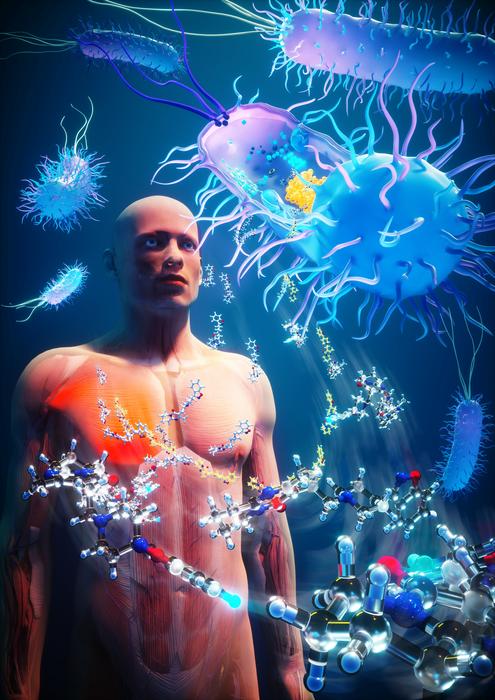DTU researchers harness the power of bacteria to heal tissues.

Credit: DTU
DTU researchers harness the power of bacteria to heal tissues.
A research team at the Technical University of Denmark, led by Alireza Dolatshahi-Pirouz, has recently uncovered new ground in tissue engineering and cell therapy by harnessing the healing power of bacteria.
The group harnessed the native bioproduction facilities in bacteria to synthesize a new biopolymer with tissue-healing properties. They used this polymer to manufacture a durable, resilient, and elastic hydrogel for muscle tissue regeneration. The study is published in the journal Bioactive Materials and details a new biopolymer – Pantoan Methacrylate, PAMA for short -with muscle regeneration properties derived from bacteria.
They have implemented this new hydrogel – or “bactogel” – to treat muscle injuries in rats with promising results. The in vivo study showed a significant increase in muscle tissue formation and reduced fibrous tissue. With nearly 100% mechanical recovery, good biocompatibility, and healing capacity, the PAMA bactogel presents a new path in the field.
“This combination of feats is rarely encountered in the field, as most bioactive hydrogels display subpar mechanical properties that do not fit the mechanically demanding milieu of musculoskeletal tissues, such as muscles, says Associate Professor Alireza Dolatshahi-Pirouz from DTU Health Tech.
“I believe that our new results could foster better therapies against musculoskeletal injuries in athletes, the elderly, as well as in wounded soldiers or others involved in accidents giving rise to traumatic muscle injuries,”
With PAMA, the team has shown that they can achieve tissue regeneration in rats without using cells, and they expect much better healing by combining their bactogels with either muscle progenitor cells or stem cells.
“I imagine a future where bacteria-derived polymers or put simply “bactomers” revolutionize the field of regenerative medicine. A future where bacteria in so-called regenerative bacto-baths secrete regenerative bactomers on demand to heal injured tissues in patients,” says Alireza Dolatshahi-Pirouz.
Journal
Bioactive Materials
Article Title
Enhancing volumetric muscle loss (VML) recovery in a rat model using super durable hydrogels derived from bacteria
Article Publication Date
1-Jun-2024
COI Statement
The authors declare that they have no known competing financial interests or personal relationships that could have appeared to influence the work reported in this paper.



